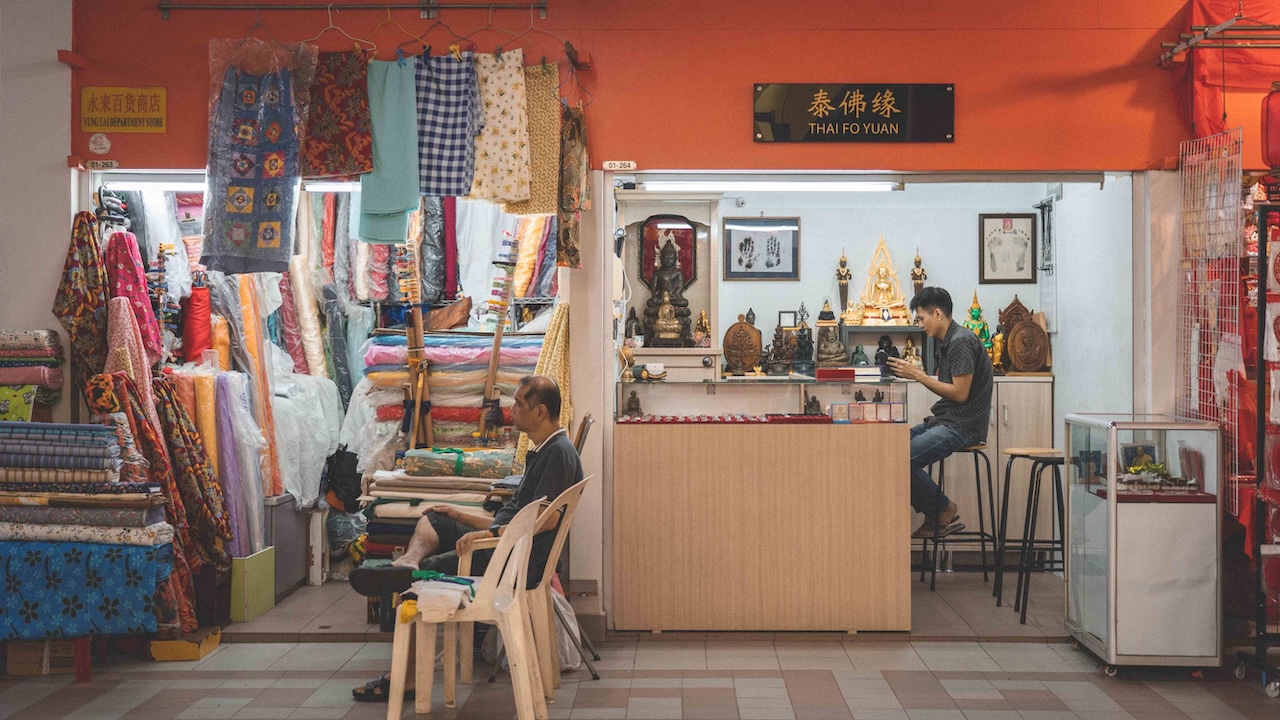Top image: Zachary Tang / RICE File Photo
In an office where I used to work, they started a ‘countdown to Labour Day’ in April. Every day, someone would be amending the countdown on the whiteboard. I didn’t get it—it felt like too much effort and fanfare for a public holiday.
One day in July, burnt out from stress and already dizzily planning for National Day, it clicked.
Public holidays are a nice bit of respite in between stretches of scheduled leave. Sometimes, they feel almost essential. Compared to the rest of the world, we just don’t get many public holidays—so when the time for an officially sanctioned break rolls around, most of us chomp at the bit to take it.
Choosing to work on a public holiday, then, is rare.
It’s not common to give up a rest day for practically nothing in return—and no, a “thanks for working” from your boss doesn’t count as an incentive. Working on a public holiday rarely nets the same double pay that most of us enjoyed as teenage part-timers in the service industry.
But if it isn’t for the money, why would someone voluntarily work on a public holiday, let alone enjoy it?
For The Team
Jean*, a 25-year-old guest relations supervisor, says: “It’s actually pretty normal for us to be working on public holidays. For us [full-timers], everything is the same—we still go to work.”
Admittedly, the hype and hankering for public holidays is a little muted when it comes to people in hospitality. For Jean and others in the service industry, public holidays aren’t the stuff of fascination they are to office nine-to-fivers. I don’t think Jean’s ever had a ‘countdown to Labour Day’ on her phone, for one.
Since she started her career four years ago, she’s been working every public holiday at a high-end hotel. Part of her job is to greet VIP guests and set up all the fixings for them—her hotel receives an influx of these VIPs every year-end.
(Because that’s what rich people do when they’re bored of their big houses; they go to big hotels)
For Jean—who requested her identity be kept private so her customers don’t recognise her—a massive perk of working on a public holiday is that she gets to take the weight off her team members’ shoulders.
The staff at her hotel generally have to work on certain blackout dates, like F1 week, Christmas, and Chinese New Year. There are limited slots for people to go on leave, and she prefers to relinquish those days off to her coworkers who celebrate. On Hari Raya public holidays, for instance, she may let Muslim full-timers go on leave instead.
“Some people may think that I don’t have a life or that I’m forced to be here, but that’s not true,” Jean says. “I’m doing this for my team.”
Her coworkers get to spend time with their families, and in return, she gets to take leave on days that are less crowded.
“I always tell my team: If you have family, go ahead and spend time with them. Don’t sacrifice your time here.”
‘I Can’t Say No, Right?’
Alvin Hadi, a 31-year-old tuition teacher, has worked through public holidays for as long as he’s been in the workforce.
He has full control over his schedule but willingly relinquishes the government-provided public holidays to hold lessons.
He reasons it out as a two-way trade between him and his students: He might have to come down to the centre on public holidays for class, but so do his students. They’re putting in effort; he wants to match it.
“If my students want and need the help, I don’t think I’m in any position to reject it. If they need help, I can’t say no to them, right?”
I mean, he can. I know I would.
That’s probably why Alvin’s a teacher and I’m not; he’s committed to doing whatever it takes for his students. If working through holidays means he can help them, he’ll do it without hesitation.
“It may sound a bit cringe to say this,” Alvin admits. “But it’s my honour to do this for my students.”
The Art of Customer Wrangling
Khaliff, who goes by one name, is a machine of a man. Since he started working in 2001, he’s worked through every single public holiday. He says there’s a manpower shortage in the F&B industry, and that’s why he works on public holidays, but I suspect he has reasons of his own.
The 41-year-old is a bartender at My Awesome Cafe in Telok Ayer. Because of his cafe’s location, he meets plenty of locals and tourists alike celebrating public holidays.
“I get to see my customers wearing nice outfits. We have good conversations, and some years, [on Hari Raya], they even give me green packets,” he says.
“Although it’s always busy on public holidays, when I’m in a good mood, I never feel tired.”
Other times, though, he’s less charmed by his customers. He uses an expressive word to describe the people who treat him and his colleagues poorly, but laughs and acknowledges that they’re the exception to the rule.
Bad customers are really few and far between. “A nice customer can erase all of the irritation I feel.”
Navigating difficult customers is just part of Khaliff’s skillset. It’s carefully trained and honed over his years in the industry; it’s a talent and an art. Not everyone can look at a screaming customer in the face and keep a smile up.
Fewer still would keep looking forward to meeting customers, but Khaliff does.
Even when things get really busy (as they naturally do on public holidays), he says he still loves the interactions he gets working in F&B.
Tired as it leaves him, Khaliff loves the mood in the air (the vibe, if you will), the people, and even the work. He speaks so fondly of his job that I start wondering if I should chart a course to work in the F&B industry, too. Somehow I don’t think I have the stones for it.
There’s one more reason why Khaliff’s been in the industry for as long as he has.
“Four words for you,” Khaliff says. He’s so serious that I lean forward in my seat.
“Free food and drinks.”
It’s what made him stay for so long in the F&B industry. When he tried working a desk job at his mother’s behest, he says he got so bored he ended up “rolling around the office in the chair”. At retail jobs, he didn’t enjoy “lying to customers”, as he puts it.
He laughs. “Why would I ever want to do anything else?”
Modern Family
Jean isn’t close to her family, which is why she’s fine with working on public holidays and even through Chinese New Year. Her own coworkers can be a little judgemental about it, she says.
“I feel like most people—even my coworkers—may not be very polite about it,” Jean says. “They ask me why I’m not spending time with my family, and it’s hard to respond in a politically correct way.”
There’s pressure to put up appearances, especially around festive periods when things are supposed to feel upbeat and happy. We’re encouraged to put aside personal matters for the sake of the family and come together to put up a united, happy front, even if things are anything but.
For Jean, though, working on public holidays ends up being a win-win situation. She gets to help alleviate the stress her team faces on busy days, and she knows that if she needs a day off in the future, they won’t hesitate to cover for her.
She speaks about her team with a tinge of familial fondness. I suppose it doesn’t have to be your blood-related family that you choose to spend time with, after all. If you’re not close to your birth family, work family will do just fine.
Khaliff, on the other hand, has a stronger relationship with his family. He says his long hours at work haven’t strained those ties.
His family’s used to his demanding schedule. He used to manage a Pizza Hut, often working 13-hour days. “They wouldn’t see me in the morning or at night.”
But his family’s permissiveness also comes from the fact that they spend plenty of time together—just not on public holidays. Khaliff points out that public holidays don’t come by that often anyway, so working on one public holiday doesn’t take away from all the time he spends with his family.
“Some people make a big deal of public holidays and specific events, like Mother’s Day and Valentines’ Day,” he says.
“But I get to see my mother every day—so every day is Mother’s Day, right?”
Of Free Will & Public Holidays
Realistically, not everyone works on a public holiday because they want to. Plenty of people are doing it because they have to. They may need to pay the bills, or they can’t take the day off for whatever reason. It’d be a mistake to assume otherwise.
The people I’ve spoken to all acknowledge that they’re in different situations from most people who work on PH. They’re grateful outliers who enjoy their work and have the freedom to enjoy it, too.
It’s just interesting that when given the choice, they do what most of us wouldn’t even fathom—they go to work. Public holidays are one of the last untouched frontiers of Singaporean freedom. If my boss asked me to work on, say, Christmas Day, I’d probably lose it.
Between Khaliff’s 13-hour days and Jean’s resolute dedication to her team, though, when does it become too much?
Does enjoying being a workaholic change the fact that it’s still, y’know, overwork?
“People call me a workaholic. I don’t know about that,” Alvin says. “All I know by default is to work.”
I can’t help but think that sounds like workaholism. At least his wife understands—she’s been accustomed to his relentless pace since they were dating. She knows how much his work means to him.
“[But] if my wife wants to do anything special, I’ll reschedule my classes.”
That’s modern-day romance, alright.
The line between working hard and being a workaholic is pretty thin, and even more so when Jean, Khaliff and Alvin all genuinely love what they do—which is more than many of us can say.
Perhaps it’s we, the office workers counting down to the next public holiday, who need to reassess our relationship with work. What does it say about us when we yearn for mandated breaks rather than finding rest in our everyday lives? If we’ve built our lives around work so completely, do we forget how to rest, even when given the chance?
Maybe the true measure of our well-being isn’t in the number of public holidays we get, but in our ability to step away from work—without needing to be told to do so.






